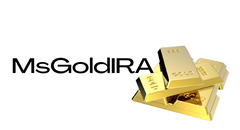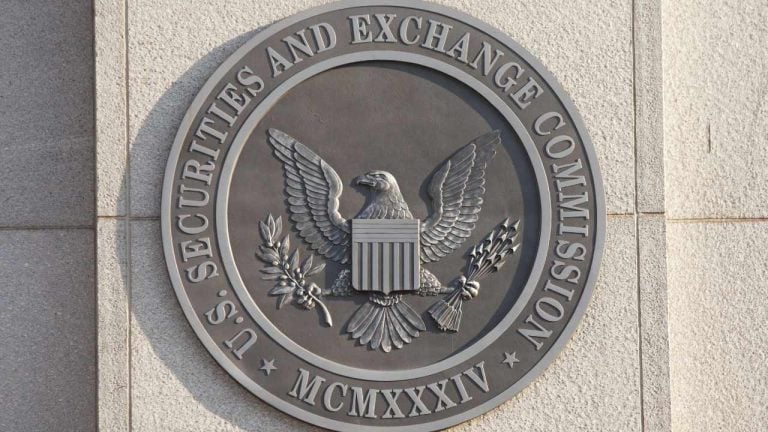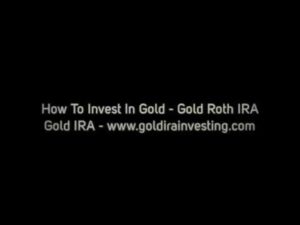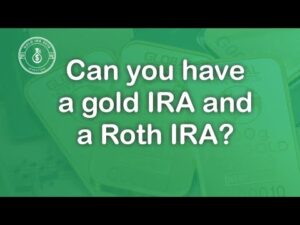
Coinbase Takes Legal Action Against SEC
The U.S. Securities and Exchange Commission (SEC) has denied Coinbase Global's Petition for Rulemaking, which sought regulatory clarity in the crypto industry. Coinbase filed the petition in July last year, specifically requesting "potential rules to identify which digital assets are securities." After receiving no response from the SEC for 18 months, Coinbase escalated the matter to court. In response, the SEC issued a denial on Friday.
SEC Chairman Gary Gensler explained the decision, stating, "First, existing laws and regulations apply to the crypto securities markets. Second, the SEC addresses the crypto securities markets through rulemaking as well. Third, it is important to maintain Commission discretion in setting its own rulemaking priorities."
Coinbase's chief legal officer, Paul Grewal, expressed the company's reaction, saying, "Today the SEC denied Coinbase's petition for rules for crypto. After 18 months of silence, we went to court to get the response the law requires. With appreciation for the Third Circuit, later today we'll again seek its help by challenging the SEC's abdication of its duty."
Grewal further revealed that Coinbase has filed with the Third Circuit to challenge the SEC's denial of their petition for crypto rulemaking, emphasizing their commitment to pursuing regulatory clarity.
Coinbase CEO Brian Armstrong also weighed in on the situation, stating, "We went to court to challenge the SEC's refusal to create clear rules for the industry — and it worked (a court compelled them to respond)." Armstrong added, "Now that they've formally responded (with a no!), we can challenge their response in court, which helps us get one step closer to regulatory clarity. The question is why doesn't the SEC want to clarify outstanding regulatory questions for the crypto industry?"
What Does this Mean for the Crypto Industry?
The SEC's denial of Coinbase's petition for regulatory clarity has raised concerns within the crypto industry. Without clear rules and guidelines, crypto businesses face uncertainty in terms of compliance and operations. The lack of regulatory clarity also hinders the growth and mainstream adoption of cryptocurrencies.
By taking legal action against the SEC's decision, Coinbase aims to challenge the agency's stance and push for clearer regulations. This could potentially lead to a more favorable environment for crypto businesses, as well as increased investor confidence.
Industry Reaction and Future Outlook
Many in the crypto community have expressed their support for Coinbase's efforts to seek regulatory clarity. They believe that clear rules and guidelines from the SEC would bring stability and legitimacy to the industry.
However, there are also those who argue that excessive regulation can stifle innovation and hinder the potential benefits of cryptocurrencies. They believe that a balance must be struck between regulation and allowing the industry to flourish.
As the legal battle between Coinbase and the SEC unfolds, the outcome will have significant implications for the entire crypto industry. A favorable ruling for Coinbase could pave the way for clearer regulations, while an unfavorable ruling could prolong the uncertainty surrounding cryptocurrencies.
Ultimately, the resolution of this case will shape the future of the crypto industry in the United States and potentially set a precedent for how regulatory bodies approach cryptocurrencies around the world.
What are your thoughts on the SEC's denial of Coinbase's petition for regulatory clarity in the crypto industry? Share your opinions in the comments section below.
Frequently Asked Questions
Who has the gold in a IRA gold?
An individual who has gold is considered to be a “form of money” by the IRS and subject to taxation.
To take advantage of this tax-free status, you must own at least $10,000 worth of gold and have been storing it for at least five years.
While gold may be a great investment to help prevent inflation and volatility in the market, it's not wise to keep it if you won't use it.
You will need to declare the value of gold if you intend on selling it one day. This could impact how capital gains taxes you owe for cash investments.
To find out what options you have, consult an accountant or financial planner.
What are the fees for an IRA that holds gold?
Six dollars per month is the fee for an Individual Retirement Account (IRA). This includes the account maintenance fees and any investment costs associated with your chosen investments.
If you want to diversify, you may be required to pay extra fees. These fees will vary depending upon the type of IRA chosen. For example, some companies offer free checking accounts but charge monthly fees for IRA accounts.
Most providers also charge annual management costs. These fees range between 0% and 1 percent. The average rate is.25% per year. However, these rates are typically waived if you use a broker like TD Ameritrade.
Should You Buy Gold?
In times past, gold was considered a safe haven for investors in times of economic trouble. Today, many people are looking to precious metals like gold and avoiding traditional investments like bonds and stocks.
The trend for gold prices has been upward in recent years but they still remain low relative to other commodities like silver and oil.
Some experts believe that this could change very soon. They believe gold prices could increase dramatically if there is another global financial crises.
They also point out that gold is becoming popular because of its perceived value and potential return.
These are some things you should consider when considering gold investing.
- The first thing to do is assess whether you actually need the money you're putting aside for retirement. You can save for retirement and not invest your savings in gold. However, when you retire at age 65, gold can provide additional protection.
- Second, be sure to understand your obligations before you purchase gold. Each one offers different levels security and flexibility.
- Keep in mind that gold may not be as secure as a bank deposit. Your gold coins may be lost and you might never get them back.
Do your research before you buy gold. Protect your gold if you already have it.
What is a gold IRA account?
Gold Ira accounts are tax-free investment vehicles for people who want to invest in precious metals.
You can purchase gold bullion coins in physical form at any moment. To invest in gold, you don't need to wait for retirement.
An IRA lets you keep your gold for life. When you die, your gold assets won't be subjected to taxes.
Your heirs will inherit your gold, and not pay capital gains taxes. You don't need to include your gold in your final estate report, as it isn't part of the estate.
First, an individual retirement account will be set up to allow you to open a golden IRA. Once you've done that, you'll receive an IRA custody. This company acts in the role of a middleman between your IRS agent and you.
Your gold IRA custodian will handle the paperwork and submit the necessary forms to the IRS. This includes filing annual reporting.
Once you've established your gold IRA, you'll be able to purchase gold bullion coins. The minimum deposit required to purchase gold bullion coins is $1,000 You'll get a higher rate of interest if you deposit more.
You'll have to pay taxes if you take your gold out of your IRA. You'll have to pay income taxes and a 10% penalty if you withdraw the entire amount.
If you only take out a very small percentage of your income, you may not need to pay tax. There are exceptions. However, there are exceptions. If you take 30% or more of your total IRA asset, you'll owe federal Income Taxes plus a 20% penalty.
You shouldn't take out more then 50% of your total IRA assets annually. Otherwise, you'll face steep financial consequences.
What Should Your IRA Include in Precious Metals?
It's important to understand that precious metals aren't only for wealthy people. You don’t need to have a lot of money to invest. You can actually make money without spending a lot on gold or silver investments.
You may consider buying physical coins such as bullion bars or rounds. It is possible to also purchase shares in companies that make precious metals. You may also be interested in an IRA transfer program offered by your retirement provider.
No matter what your preference, precious metals will still be of benefit to you. They offer the potential for long-term, sustainable growth even though they aren’t stocks.
And, unlike traditional investments, their prices tend to rise over time. If you decide to sell your investment, you will likely make more than with traditional investments.
How to Open a Precious Metal IRA?
First, you must decide if your Individual Retirement Account (IRA) is what you want. Once you have decided to open an Individual Retirement Account (IRA), you will need to complete Form 806. You will then need to complete Form 5204 in order to determine which type IRA you are eligible. You must complete this form within 60 days of opening your account. Once you have completed this form, it is possible to begin investing. You might also be able to contribute directly from the paycheck through payroll deduction.
You must complete Form 8903 if you choose a Roth IRA. Otherwise, the process is identical to an ordinary IRA.
To be eligible to have a precious metals IRA you must meet certain criteria. The IRS says you must be 18 years old and have earned income. Your earnings cannot exceed $110,000 per year ($220,000 if married and filing jointly) for any single tax year. Contributions must be made on a regular basis. These rules apply to contributions made directly or through employer sponsorship.
You can use a precious metals IRA to invest in gold, silver, palladium, platinum, rhodium, or even platinum. However, physical bullion will not be available for purchase. This means that you will not be allowed to trade shares or bonds.
Your precious metals IRA may also be used to invest in precious-metal companies. This option is offered by some IRA providers.
However, there are two significant drawbacks to investing in precious metals via an IRA. First, they don't have the same liquidity as stocks or bonds. This makes it harder to sell them when needed. They also don't pay dividends, like stocks and bonds. You'll lose your money over time, rather than making it.
What are the pros and disadvantages of a gold IRA
An Individual Retirement Plan (IRA) has a major advantage over regular savings accounts. It doesn't tax any interest earned. An IRA is a good choice for those who want a way to save some money but don’t want the tax. But, this type of investment comes with its own set of disadvantages.
If you withdraw too many funds from your IRA at once, you may lose all your accumulated assets. The IRS may prohibit you from withdrawing funds from your IRA before you are 59 1/2 years of age. If you do withdraw funds from your IRA you will most likely be required to pay a penalty.
Another problem is the cost of managing your IRA. Many banks charge between 0.5%-2.0% per year. Others charge management fees that range from $10 to $50 per month.
If you prefer to keep your money outside a bank, you'll need to purchase insurance. Insurance companies will usually require that you have at least $500,000. Some insurers may require you to have insurance that covers losses up $500,000.
If you decide to open a gold IRA, it is important to know how much you can use. Some providers limit the amount of gold that you are allowed to own. Others let you pick your weight.
You will also have to decide whether to purchase futures or physical gold. Futures contracts for gold are less expensive than physical gold. However, futures contracts give you flexibility when buying gold. Futures contracts allow you to create a contract with a specified expiration date.
You'll also need to decide what kind of insurance coverage you want. The standard policy doesn’t provide theft protection or loss due fire, flood, or earthquake. It does provide coverage for damage from natural disasters, however. If you live near a high-risk region, you might want to consider additional coverage.
Additional to your insurance, you will need to consider how much it costs to store your gold. Storage costs are not covered by insurance. Banks charge between $25 and $40 per month for safekeeping.
Before you can open a gold IRA you need to contact a qualified Custodian. A custodian is responsible for keeping track of your investments. They also ensure that you adhere to federal regulations. Custodians don't have the right to sell assets. Instead, they must keep your assets for as long you request.
After you have decided on the type of IRA that best suits you, you will need to complete paperwork detailing your goals. You must include information about what investments you would like to make (e.g. stocks, bonds and mutual funds). It is also important to specify how much money you will invest each month.
After completing the forms, send them along with a check or a small deposit to your chosen provider. The company will review your application and send you a confirmation letter.
Consider consulting a financial advisor when opening a golden IRA. A financial planner can help you decide the type of IRA that is right for your needs. They can help reduce your expenses by helping you find cheaper alternatives to buying insurance.
Statistics
- Gold is considered a collectible, and profits from a sale are taxed at a maximum rate of 28 percent. (aarp.org)
- This is a 15% margin that has shown no stable direction of growth but fluctuates seemingly at random. (smartasset.com)
- Indeed, several financial advisers interviewed for this article suggest you invest 5 to 15 percent of your portfolio in gold, just in case. (aarp.org)
- The price of gold jumped 131 percent from late 2007 to September 2011, when it hit a high of $1,921 an ounce, according to the World Gold Council. (aarp.org)
- If you accidentally make an improper transaction, the IRS will disallow it and count it as a withdrawal, so you would owe income tax on the item's value and, if you are younger than 59 ½, an additional 10% early withdrawal penalty. (forbes.com)













